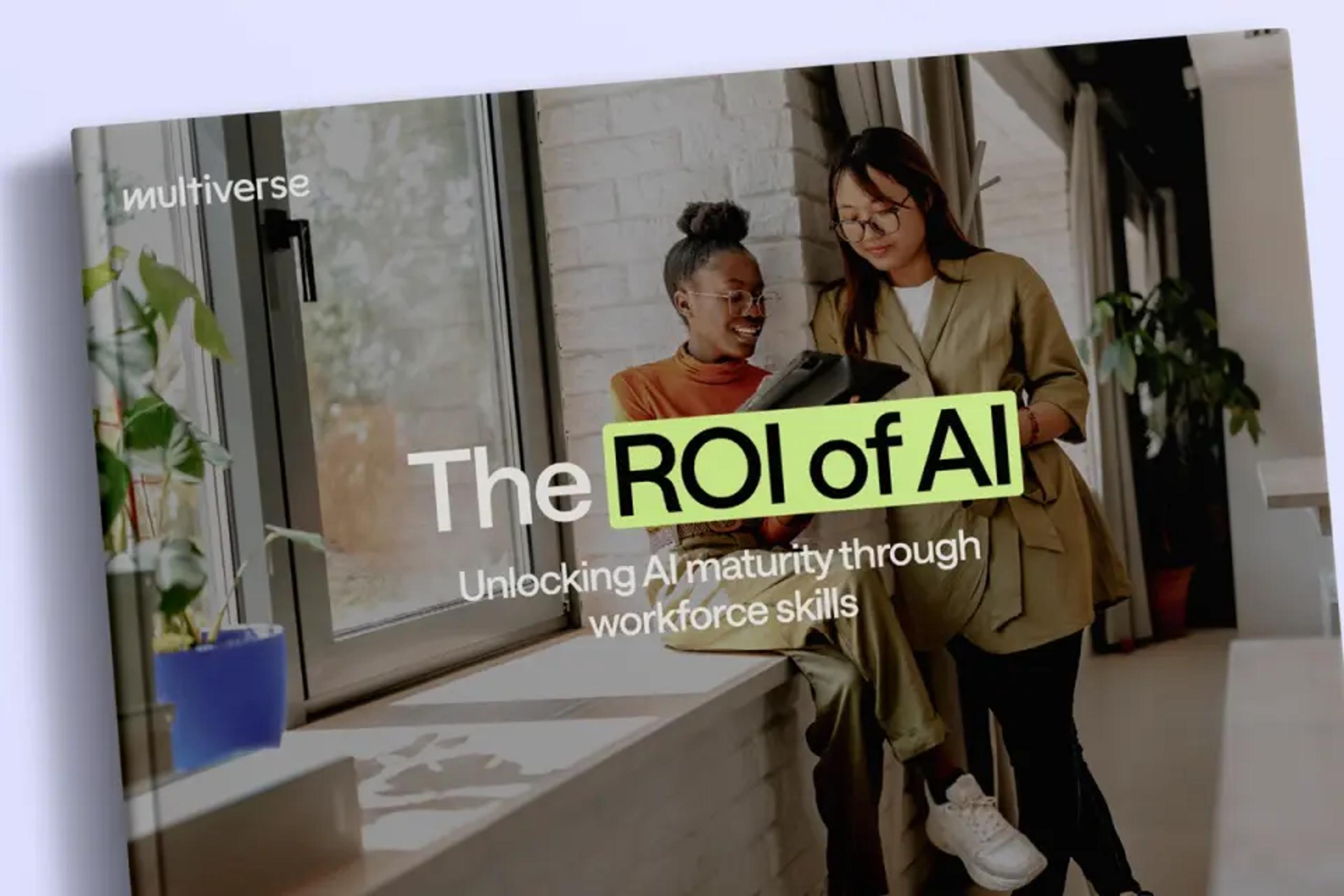It’s National Apprenticeship Week and it’s great to see the spotlight on amazing apprentices and high quality apprenticeship programmes. At Multiverse, we continually talk about building an outstanding alternative to university. The incredible careers our apprentices are pursuing and the experience they’re getting are evidence of how this can be achieved. This week is an opportunity to celebrate their hard work, the contributions they are making to their employers, the investment companies are making in their talent, and the importance of building a world class system for applied learning that helps fill the skills gap and sets our country up for long term success.
However, the experience apprentices receive isn’t universal and poor apprenticeship provision stifles the sincere attempts of organisations to drive forward an apprenticeship-led approach to talent acquisition and employee development. We’ve had a number of employers approach us to seek advice because their current apprenticeship provision is not good enough. They are deeply frustrated; they want this to work and are excited about developing those with high potential and watching them grow, but the provision they are getting is of a low standard.
This is a problem that needs to be confronted head on; poor quality provision is the biggest risk to the hugely ambitious apprenticeships project the UK is embarking on. Apprenticeships have overwhelming support from all politicians and parties, the general public, and employers themselves, but we can’t take this support for granted.
There are employers that are dismayed by the quality of training and support from providers. They are often frustrated at lack of programmatic coherence, churn in those delivering the training, and a lack of overall accountability and visibility of progress across the apprenticeship. Some providers have attempted to mask shortcomings by claiming that the system is the problem; there aren’t apprenticeship standards that work, 20% off the job training is too much of a burden, or there isn’t enough freedom to deliver what the employer actually wants. We know of one example where apprentices on a data analyst programme were made to repeatedly take health & safety modules because it was “an official requirement.” We should all be grown up enough here not to play the victim. Most of the time, the real problem is a lack of imagination, a inability to change their ways, and a failure to examine on a first principles basis; what makes a brilliant development programme, and then how does it work as an apprenticeship? There is no question that new apprenticeship standards provide much more flexibility around delivery styles and teaching, so simply repurposing an apprenticeship framework is never the right answer. A relentless focus on quality above all else is essential.
Employers should not tolerate this approach; not only is it not right for them or their apprentices, but it actively undermines the cause of apprenticeships and their re-imagining as something that should define what the future of work looks like. The good news for employers who are frustrated is that it is both possible and straightforward to transfer apprentices away from existing poor provision. More employers should take this option where they are feeling genuinely let down. The process is typically as follows: the employer informs their current provider that they are moving the apprentices and asks for a report confirming key details (e.g. start date, progress with learning, 20% off-the-job training). Then the employer simply logs onto their Digital Apprentice Service (DAS) account and stops their current provider drawing down additional funding. At this point, apprentices are ready to be moved to new provision.
When this happens, the first step is for the new provider to re-engage and inspire apprentices; show them that an apprenticeship doesn’t have to look like what they’ve experienced to date. Then include line managers and other stakeholders within the organisation to address concerns they have had with the provision head on and explain what steps will be taken to ensure that this experience will be different. Finally, an in-depth analysis of what has actually been taught over the period of time apprentices have been on programme is required. This should examine what practical skills they can demonstrate based on learning to date and identify any gaps that exist. 1-on-1 interviews are the best way of understanding what matters to participants and digging into where they feel confident vs. where they need to develop more.
Apprenticeship programmes should be stretching, with people delivering the training that apprentices actually feel they can learn from. They should include relevant projects that can be applied to problems apprentices are trying to solve in their daily work, and be of real use to their employer. They should be a chance for apprentices to reflect on what it takes to be successful in their chosen field and to meet others going through the same experience. Apprenticeships must be about more than just work and training; the best apprenticeships will develop people to be future leaders and encourage the growth mindset it takes to be successful across a range of rapidly changing industries.
The overall value of apprenticeships is greatly reduced if the training provision is dull, uninspiring, failing to teach apprentices anything of value, and results in a fall in engagement. The situation is even worse where an employer has put existing employees onto an apprenticeship programme and the training experience is underwhelming. Dropouts from the programme are high and engagement is damaged.
Delivering an excellent apprenticeship experience is something we are passionate about at Multiverse, for the benefit of our apprentices and the employers we’re supporting. We urge organisations that are unhappy with their apprenticeship provision to demand great over average and if it isn’t delivered, to make a change to provision that’s really worthwhile.
If you are looking to determine the right partner to work with, these are 5 questions you should be asking your apprenticeship provider.
When to consider changing your apprenticeship provision:
- Poor delivery from the person delivering the training; lack of responsiveness, inconsistent timekeeping, inability to tailor teaching according to organisational context, uninspiring or ineffective approach
- Apprenticeship programme is delivered in a formulaic manner, with no added content or experience beyond what is required in the standard
- Lack of visibility to HR and line managers around apprentice progress, development (both personal and professional), and benefits of the programme
- Where existing employees are involved; they feel they have been forced onto the programme, and acceptance was automatic. The programme doesn’t feel special or aspirational, and hasn’t been communicated properly
- No engagement among stakeholders; limited internal awareness or understanding of the apprenticeship programme




